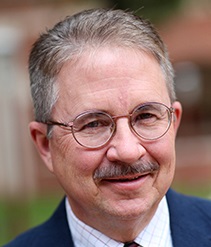By Bob Allen
A professor at a moderate Baptist seminary says some individuals within the Cooperative Baptist Fellowship are starting to sound more liberal than moderate, prompting others to worry the quasi-denomination is drifting leftward and away from its evangelical roots.
 Roger Olson, professor of theology and Christian ethics at Baylor’s George W. Truett Theological Seminary, said in a Patheos blog Feb. 22 that a division is developing in the 1,800-church network founded in 1990.
Roger Olson, professor of theology and Christian ethics at Baylor’s George W. Truett Theological Seminary, said in a Patheos blog Feb. 22 that a division is developing in the 1,800-church network founded in 1990.
On one hand, he said, there are those who want to elevate the Baptist concept of “soul competency” to question traditional orthodoxy. Others “want to hold to basic Christian orthodox and evangelical commitments while avoiding rigid, narrow dogmatism over secondary matters.”
Olson said Cecil Sherman, the founding coordinator of the CBF who died in 2010, was by all accounts the figurehead leader of the moderate Baptist party that left the Southern Baptist Convention to establish a truly moderate — neither liberal nor fundamentalist — Baptist group in the South.
Olson said he believes if Sherman were alive today “he would have some harsh words of correction for some influential moderate Baptists, including some within the CBF,” who are advocating a liberal theology that reduces the Christian faith “to being nice and inclusive to the exclusion of correct belief.”
“I’m sure he would place limits on ‘soul competency’ — a Baptist idea that some use to excuse heresy,” he said.
Olson said he still considers himself a moderate Baptist, but some people he respects are dropping the label because they increasingly associate it “with a more liberal approach to being Baptist.”
“I do not like to give up good labels just because some people distort them,” he said. “I still consider myself ‘evangelical’ even though the label is synonymous with the Religious Right in many people’s minds.”
“However, I am a conservative among the moderates in the CBF and urge those moderate Baptists who are really liberal, in the historical sense, to drop the label moderate and just call themselves liberals,” Olson said. “When they agree with Marcus Borg’s theology, for example, they are liberal, not moderate.”
On the flipside, Olson said, some who wish to retain the founding ethos of the moderate movement are “blaming the whole CBF for the excesses of some.”
“Nobody speaks for the whole CBF or all formerly Southern Baptist moderates,” he counseled.
Olson said some CBFers talk of leaving “because a few individuals within it have publicly expressed what they consider liberal views.” That is not a moderate reaction, he said, but rather “a kind of fundamentalist approach.”
“It’s separatism,” he said. “Indeed, there comes a time when it is appropriate to leave a church or denomination — when its leadership and movers and shakers have become heretical or apostate.”
“But two things must be said about this,” he continued. “First, the CBF is not really a ‘denomination’ as such; it is a network of churches (and institutions) cooperating together in mission. There is no leadership that speaks for the whole.
“Second, even the more conservative moderate Baptists criticized the SBC for leaving the Baptist World Alliance because it contains some liberal Baptists. How would leaving the CBF be any different?”
Previous story:
For Baptists, a lone Arminian voice crying in a Calvinist wilderness
